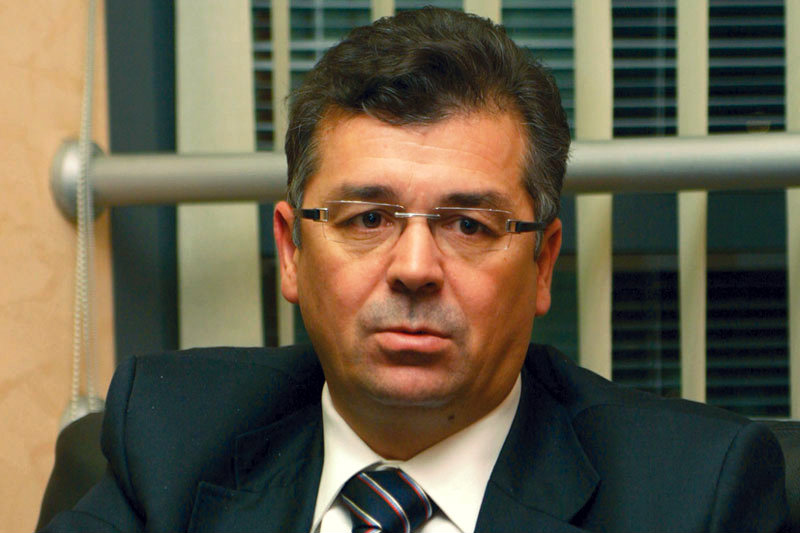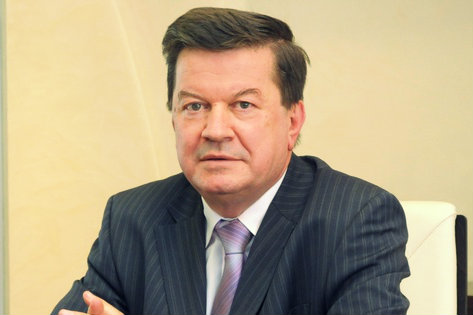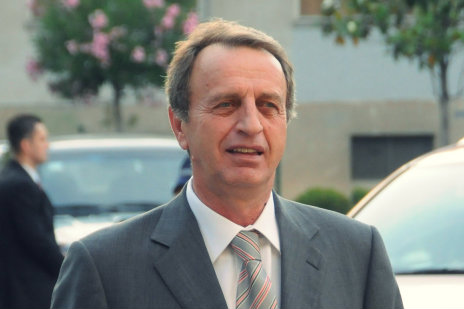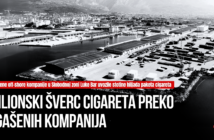Buyer made to measure of the creditors
 ,,We were advised to sell KAP for just one dollar, and now even the business concluded with Rusal is not good for them, even though we are receiving hundreds of millions “, said President of the Tender Commission Branimir Gvozdenović to the critics of privatisation. The events that followed showed that his optimism arrived early
,,We were advised to sell KAP for just one dollar, and now even the business concluded with Rusal is not good for them, even though we are receiving hundreds of millions “, said President of the Tender Commission Branimir Gvozdenović to the critics of privatisation. The events that followed showed that his optimism arrived early
Tender chronology
– The preliminary tender for the sale of the Aluminium Plant was published on August 9 2004. Out of seven companies that applied, four met the required conditions.
– The time limit for submission of tenders expired on December 1 2004. No tender arrived. The Government made the decision to prolong the time for applying of interested buyers until January 20 2005.
– During the first ,,extension” arrives the tender of Salomon, an off-shore company behind which allegedly stands Oleg Deripaska, the owner of Rusal. Montenegrin officials commented on the objection that Salomon does not meet any of the criteria prescribed at the beginning of the privatization process by saying:,,the essence is more important that the form “. Still, two month negotiations advance with difficulty and reach a blind alley.
– The Russian multimillionaire Oleg Deripaska arrives to Podgorica on April 5. He meets the Prime Minister Milo Đukanović. The owner of Rusal promises more money and new guarantees. Satisfied with the new offer, they drank whiskey in the Podgorica cafe Grand.
– Representatives of the Government of Montenegro and the state funds who are owners of KAP shares sign a Purchase Contract with the off-shore companies Salomon (buyer) and Igl capital (a guarantee of taken over obligations) on July 27 2005. The contract foresees that Salomon should pay 48.5 million euros for 65.4 of shares of the state funds in KAP, ,,subsidize” Montenegrin government with 27 million dollars, invest 55 million euros for modernization of KAP plants and secure 20 million euros of credit for ecological program. The buyers are bound by the Contract to obtain written consent of two out of three biggest creditors of the Plant within twenty days.
– The Tender Commission for Privatization stated that, on September 14, Igl capital changed its name into En plus group, and moved its seat from the Virgin Islands to Jersey Island.
– Five days before the expiry of the contracted time limit, on October 19, representatives of Salomon ask for two more months for agreement on payment of debts to the biggest creditors of the Plant. In three months, they made an agreement only with Glencore.
– Oleg Deripaska arrives again to Podgorica on October 24. He makes a business agreement with Dragan Brković, owner of Vektra which claims from KAP over 50 million dollars. At the same time, he manages to obtain from Đukanović and his collaborators a prolongation of the contracted time limit for taking over the Aluminium Plant until November 30.
– Immediately before takeover of the factory, the leaving management makes an agreement to continue cooperation with Glencore – entire produced aluminium (minimum 100 thousand tons a year) is sold via the Swiss company. Only the discount is smaller in relation to the time when KAP was the property of Montenegro
By the end of 2003 the management of KAP set a diagnosis: privatization or bankruptcy. The Plant has not been modernized, it has too many workers, it is overloaded with debts, and the price and quantity of electricity cannot be brought to an acceptable level.
These were the main reasons for the Board of Directors and the Management of KAP to initiate privatization at the beginning of the year, despite the fact that by law they were not authorized to do that. The Government accepted the initiative and prepared a draft privatization strategy for KAP. It was only then that the public was informed that the debts of the Plant had grown: at the beginning of 2004, KAP owed in various foreign currencies between 270 and 320 million dollars, to domestic and foreign creditors. A higher amount was documented in the Balance Sheet of KAP, and a smaller one in the Draft privatization strategy.
FEARS AND DOUBTS:
 Mihailo Banjević, at that time the first man of the Plant points out: ,,KAP needs modernization, because it cannot stand up to competition, and everyone should know that. We are the last factory in Europe that has not been modernized. It is important for KAP to make a modern, competitive factory”.
Mihailo Banjević, at that time the first man of the Plant points out: ,,KAP needs modernization, because it cannot stand up to competition, and everyone should know that. We are the last factory in Europe that has not been modernized. It is important for KAP to make a modern, competitive factory”.
The time has shown that after privatization of the factory nothing of what was desired came true. The French Commercial Bank (CCF) that prepared KAP for privatisation states that 175 million dollars need to be invested in it to operate profitably. Vice-president of the Privatisation Council, Veselin Vukotić says that after privatisation of KAP, the privatisation process in Montenegro will be completed, while advisors of BNP Paribas think that delay of privatisation represents the biggest risk for KAP, which can lead to company liquidation in the long run.
SDP, the smaller member of the ruling coallition, does not share the enthusiasm regarding privatisation of the Plant. Žarko Rakčević states that it is „inconceivable” that the status of KAP is changed without an expert debate, without the public and a tender. ,,Have experts answered the question of the public – does Montenegro need the Aluminium Plant like this and on what conditions? Has a macroanalysis of the costs and revenues of Montenegro been made?”, asked Rakčević.
As the answer to the critiques DPS offers a „compromise” – those interested have the right to organize a public debate, but what is heard there is not binding for the Government in any way. The Prime Minister Milo Đukanović was not present at any of the four panels held during the debate on the Draft KAP Privatisation Strategy.
On July 11, answering the question whether privatisation should be stopped until the real debts and their structure are known, Đukanović said he does not see a solid connection between the story on debts of KAP and its privatisation. As far as the Contract on Management with Glencore is concerned, he explained that he was the President of Montenegro at that time, and that members of the Government did that.
President of the Council of SDP and a member of the Board of Directors of EPCG Radivoje Brajović initiates at the same time a story on one of the key issues in the production chain. In an interview for Vijesti Brajović says that it must not be accepted that Elektroprivreda secures high subsidies to the future buyer for a number of years, if the so called big creditors who benefitted from doing business with KAP do not take over a part of the burden for the new situation: „The Energy system of Montenegro is small, with a high deficit and cannot secure supply of electrolysis with the prices that make such production economically viable. This can be done by huge systems with the surplusses of energy. Where there are no such conditions electrolysis are being shut down throughout the world.”
WARNINGS: Several months later, on October 11, almost identical views are put forward by the renowned world economist, Jeffrey Sacks. At Sveti Stefan he said to Montenegrin officials: if an investor for the Aluminium Plant can pay the full price of electricity, and the full ecological price, then KAP should be sold. Still, if an investor cannot pay the full price, that is the end of the game, and then the problem is no more privatisation, modernisation and preservation of aluminium industry, to the same extent as it is the problem of its extinguishing, and of what should be done in the following 20 years for the sector which is not producing any more.
Similar thoughts were also expressed during the public debate by the head of the UNDP Office in Montenegro Garet Tankosić Keli. He warned that the privatisation startegy for KAP does not deal at all with the issue who will one day, when the factory is closed down, clean up the location where this factory is now situated. It is not important whether this happens in ten, 20 or 30 years. When the bauxite resources disappear, in 30 years, KAP should be closed down and the place where it is now located cleaned. Maybe even earlier, if, say, the prices of electricity rise significantly. Even then it would be necessary to create a new eco-fund, and the Government should know already whose duty this will be – whether of the new owner or its own, in order to start collecting alredy eco-tax for every ton produced.
However, the executive authorities mainly remained deaf for these and similar remarks. They focussed on a different problem.
 „The Government or a future owner are obliged to pay debts to the main creditors before or during privatisation, unless the buyer and creditors agree otherwise “, revealed Dragan Brković, President of Vektra from Podgorica, referring to the contract on reprogramme of debt. This is why, says Brković, the future buyer must talk to the creditors. Brković confirmed to Montenegrin media that Vektra was going to participate at the tender for KAP and that talks with the other potential participants have already been conducted. Still, Brković complained in advance of ,,the ruling logic of privatisation in Montenegro that it is better to give something as a present to a foreigner, than sell it to our man “.
„The Government or a future owner are obliged to pay debts to the main creditors before or during privatisation, unless the buyer and creditors agree otherwise “, revealed Dragan Brković, President of Vektra from Podgorica, referring to the contract on reprogramme of debt. This is why, says Brković, the future buyer must talk to the creditors. Brković confirmed to Montenegrin media that Vektra was going to participate at the tender for KAP and that talks with the other potential participants have already been conducted. Still, Brković complained in advance of ,,the ruling logic of privatisation in Montenegro that it is better to give something as a present to a foreigner, than sell it to our man “.
Priorities of Đukanović’s cabinet were confirmed after on the penultimate day of July the Government adopted the Privatisation Strategy for KAP. Unanimously – as it was reported. However, SDP was not satisfied with the manner of work and soon left the Tender Commission and the Privatisation Council. In parallel with the adoption of the Strategy the Government reported that „it left it to the prosecution and the Supreme State Prosecutor Vesna Medenica to question the contracts on reprogramme of debts of KAP, if they themselves deem it necessary”. The prosecution office did not give any statements.
AGREEMENT: The bidding started. Members of the Commission for Privatisation of KAP reported that the conditions of preliminary tender were met by four out of eight applying companies. The Swiss Glencore, the Russian Rusal and Sual, and the Indian Vedanta were given green light to continue bidding.
Glencore was considered the greatest favorite. “What makes Glencore the most serious buyer for KAP is its claim of 34.5 million dollars from the Podgorica company”, wrote in those days the local media. Podgorica daily Dan writes: „Glencore obtained advantage over the Russian Rusal, the Russian company that controlls 80 percent of the market there, on October 19, when it granted to the company a credit of 150 million dollars. Rusal owes 1.4 billion dollars to foreign and Russian banks and that credit was necessary for remedying the urgent domestic debts. The credit was granted for three years, with a low interest for the first seven months, but with an obligation of Rusal to supply the Swiss comany during the period of debt repayment with raw aluminium. It had concluded a similar contract with KAP six years before, and a debt of five million dollars had risen to 34.5, and KAP is selling all its aluminium to Glencore in the factory court with a discount of 80 to 100 dollars per ton. The major foreign creditor of Rusal is the French bank BNP Paribas, which Montenegrin Government engaged as its advisor for the sale of KAP.”
Even though everything was in favour of the fact that the company established by Marc Rich would become the majority owner of KAP, Glencore did not submit the final tender. Only one of the off-shore affiliations of Oleg Deripaska submitted a bid to the tender. After almost one year long negotiations in which Montenegrin Government made numerous concessions, the agreement was reached in autumn 2005.
,,We were advised to sell KAP for just one dollar, and now even the business concluded with Rusal is not good for them, even though we are receiving hundreds of millions “, said President of the Tender Commission Branimir Gvozdenović to the critics of privatisation. The events that followed showed that his optimism arrived early.



